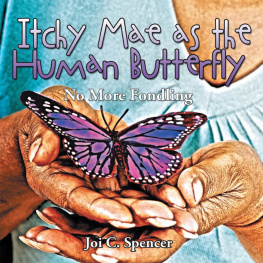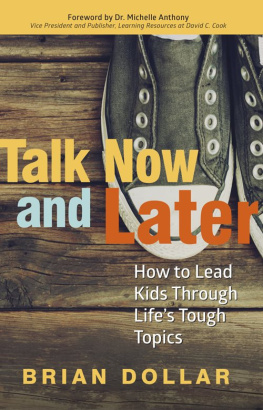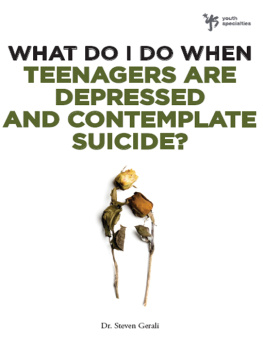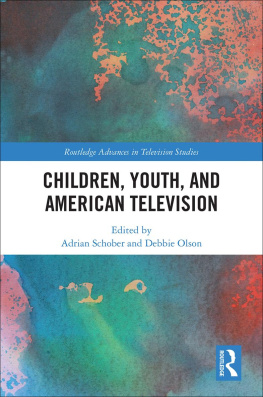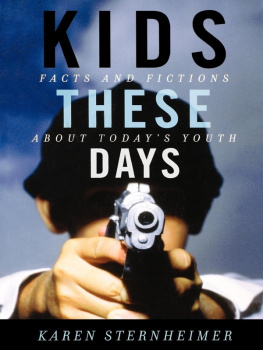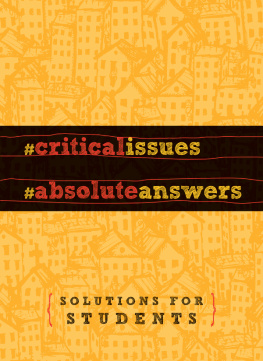Itchy Mae as the
Human Butterfly
No More Fondling
Joi C. Spencer
AuthorHouse
1663 Liberty Drive
Bloomington, IN47403
www.authorhouse.com
Phone: 1-800-839-8640
2012 Joi C. Spencer. All Rights Reserved.
No part of this book may be reproduced, stored in a retrieval system, or transmitted by any means without the written permission of the author.
Published by AuthorHouse 01/28/2012
ISBN: 978-1-4670-2579-9 (sc)
ISBN: 978-1-4817-1504-1 (ebook)
Library of Congress Control Number: 2011963137
Any people depicted in stock imagery provided by Thinkstock are models,
and such images are being used for illustrative purposes only.
Certain stock imagery Thinkstock.
Because of the dynamic nature of the Internet, any web addresses or links contained in this book may have changed since publication and may no longer be valid. The views expressed in this work are solely those of the author and do not necessarily reflect the views of the publisher, and the publisher hereby disclaims any responsibility for them.

Contents
Beginning of a Series
This book is dedicated to the memory of Willie James Bennett and Thorny T Bennett.
PREFACE
My story is told in the third person, and most of the characters are not named. This book was written to help those of you who struggle with depression due to things that occurred during your childhood. I am here to encourage you to never give up! There is no way I could have covered every year of my life, so I decided to write in intervals of three to four years, starting when I was three and covering four decades. I use two scriptures from the Bible, but this book is not just for Christians; its for all parents and their adolescent children. As you read, you will laugh, dance, cry, and say, I remember that. In the first book, I talk about growing up in Detroit, Michigan; I mention different department stores, theaters, the mayors and presidents who held office, and the music that was popular at the time. Music was actually very therapeutic; I gained an appreciation for the late Marvin Gayes song Just like Music.
The first book in this series was created for children ages eight to thirteen and their parents. The purpose is to help parents and their children feel comfortable talking about staying Free from Fondling and molestation. The intent is to teach children the difference between good touching and bad touching. For decades parents have taught their children to trust adults like relatives, principals, teachers, priests, ministers, elders, bishops, police, and doctors. However, children need to know to alert an adult when the trust is broken. To educate our children, we can start by teaching them to respect adults but respond to wrong behavior. Today, we hear more than we used to about incest and molestation, and children know the proper names of their sex organs and no longer need to refer to them by nickname. Some parents refer to the nicknames (like pocketbook, kittycat, Sam sausage, wee wee, willy, or tail) out in public and refer to the proper names penis and vagina while at home. Parents today also teach their children not to let anyone touch them in the areas that their swimsuits or swim trunks cover. They have taught their children to shake hands or hug adults rather than kiss them or sit on their laps. We now need to teach our children to tell us immediately when someone touches them inappropriately! It does not matter if the adult threatens them. As a parent, I taught my daughter that she did not need help with being wiped after using the bathroom once she turned five, and she didnt need help bathing, either. These are some tactics a pedophile will try, along with buying ice cream, doughnuts, or candy to gain a childs trust. As a parent, I taught my daughter that if anyone touched her inappropriately, she should run, screaming fire. This gets the child away from the predator and holds the adult accountable. Dont hold your child solely responsible to tell you; teach him or her to respond! Remember, this is a child. Dont teach the child to scream out help or say, I will tell on you. Teach them to respond quickly, just as quickly as fire spreads, and it will hopefully stop or slow down those who prey on children. This is the same tactic self-defense classes use when they teach girls/ women to just yell fire.
The second book will cover life lessons learned during high school, college, dating, and the birth of a poet. The third section will cover relationships, marriage, parenthood, and building a personal relationship with God. This book is for all readers interested in reading about a woman who overcame several obstacles through perseverance while achieving the victory of loving herself. The life obstacles helped to build my commitment, confidence, and compassion. I compare my life journey to the metamorphosis of a butterfly.
The different butterflies on each page are in different shades of purple that represent the royalty, beauty, strength, ambition, dignity, wisdom, and willingness to fight, despite all odds, of the character, who is referred to by a nickname and not by her given name. In some cultures, a persons name has a meaning; for instance the name Nia in the language Kiswahili means purpose. The name Butterfly is of English origin and, when it is used as a girls name, it is unique! This name is not in the 1,000 top most common names used in the United States. Joy is the 235th most common girls name in the United States; however the spelling Joi is unique! My mother once told me she was happy and thankful to God for my existence, and being a Christian woman, she gave me the name Joi Christie. Joy is one of the fruits of the spirit in the Bible, along with love, peace, patience, kindness, goodness, faithfulness, gentleness, and self-controlall attributes a Christian should display. While reading, you will follow along and notice it takes the character forty-four years to learn how to manifest all these attributes in her own life. My mother always had a saying, Keep living. You may experience a lot of problems in life, but you wont fully understand what it means to keep living until you learn to control your problems and not let them control you! The purpose of this book is to inspire and let people know that their later lives can be better than their beginnings, if they embrace happiness and gain a greater appreciation of life.
ACKNOWLEDGMENTS
I would like to thank my mother, Claudia L. Scroggins, for giving me the hope to keep living, and my father, the Reverend Caleb B. Gardner, for giving me the appreciation of life that helped me to tell my story and make a dream a reality.
Thank you also to Dr. Jacquelyn G. Wilson, Lamiria Huddleston, Ramonda Hollenquest, Kippie Martin, Andre Thomas, Stephanie Mass-Hill, and everyone who inspired and helped to make this book a reality.
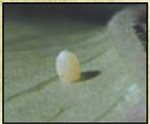
Chapter 1
Little Beginnings
I t was a hot summer day in Detroit, Michigan. The year was 1969 and a family of five was trying to keep cool around one fan while they comforted little Itchy Mae. She was a little girl surrounded by love while she lay on a pallet on the floor, her body covered with scales, scratches, and scabs. The little girls hands were covered with socks to keep her from scratching. Itchy Mae was diagnosed with eczema (itching skin inflammation) and food allergies. Richard Nixon was president, and he started to withdraw troops from Vietnam. It was also the year that the Jackson 5 released their single I Want You Back. This family had survived the riots of 1967, when theyd lived on Duane off Elmhurst, and was now much safer in their new home. Itchy Maes grandparents, aunts, and uncles were able to move from that area as well. They all lived within walking distance of Itchy Maes mother and sisters, and only five blocks from all her other relatives. This was a very tight-knit family with strong Christian family values; they had traveled to Michigan from Black Mountain, Kentucky to improve their lives. This little girl brought this family so much joy. Some of the fondest memories were Itchy Mae and her mom walking to the house of her grandparents, whom she called Paw Paw and Maw Maw. They lived in a beautiful big white-frame house with white banisters. Every chance Itchy Mae got, she ran outside, watching Maw Maw hang clothes to dry on the line or running to the banister and clean it. Itchys sisters would say, Itchy eats all the dirt she can see.
Next page
